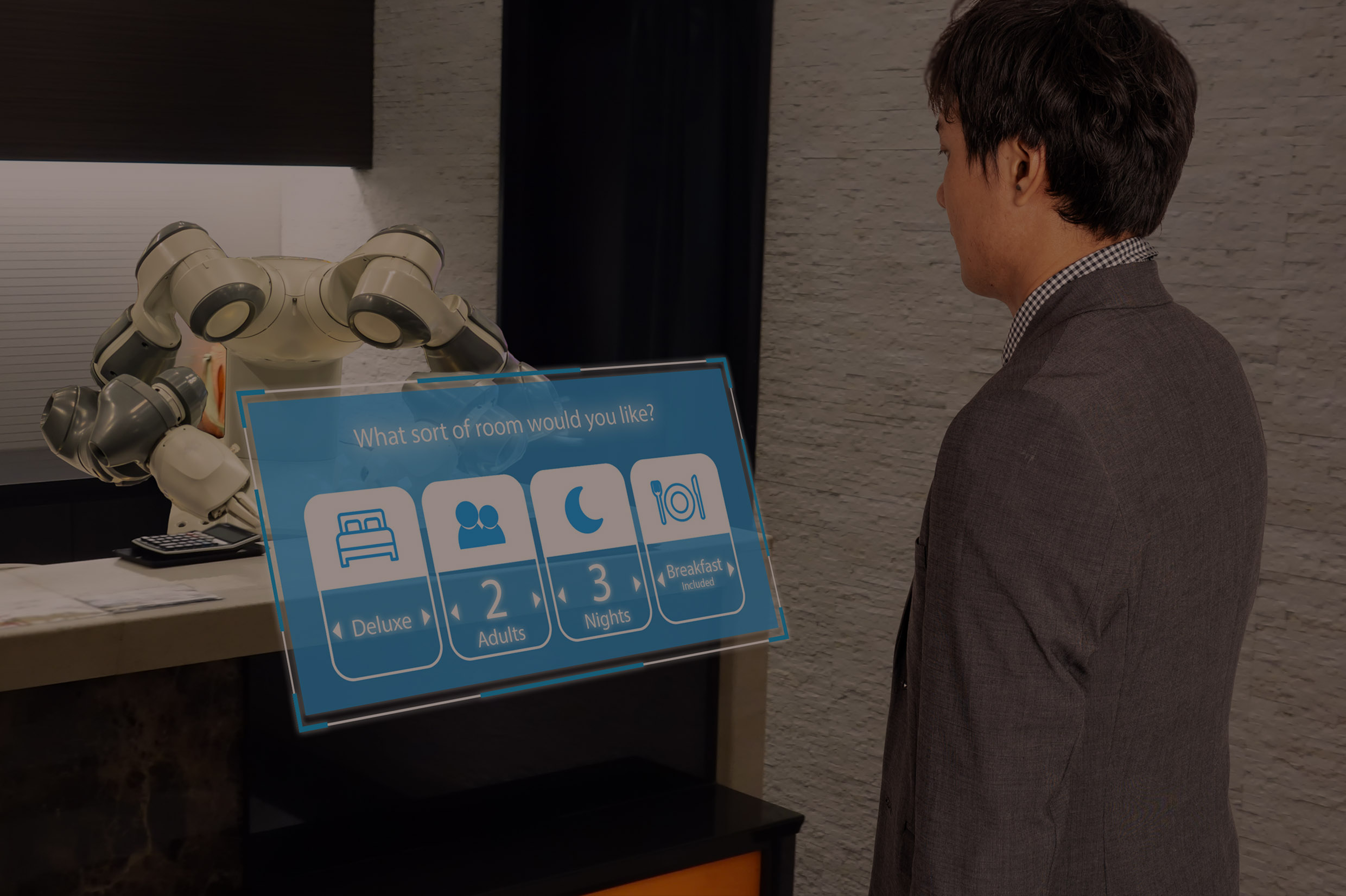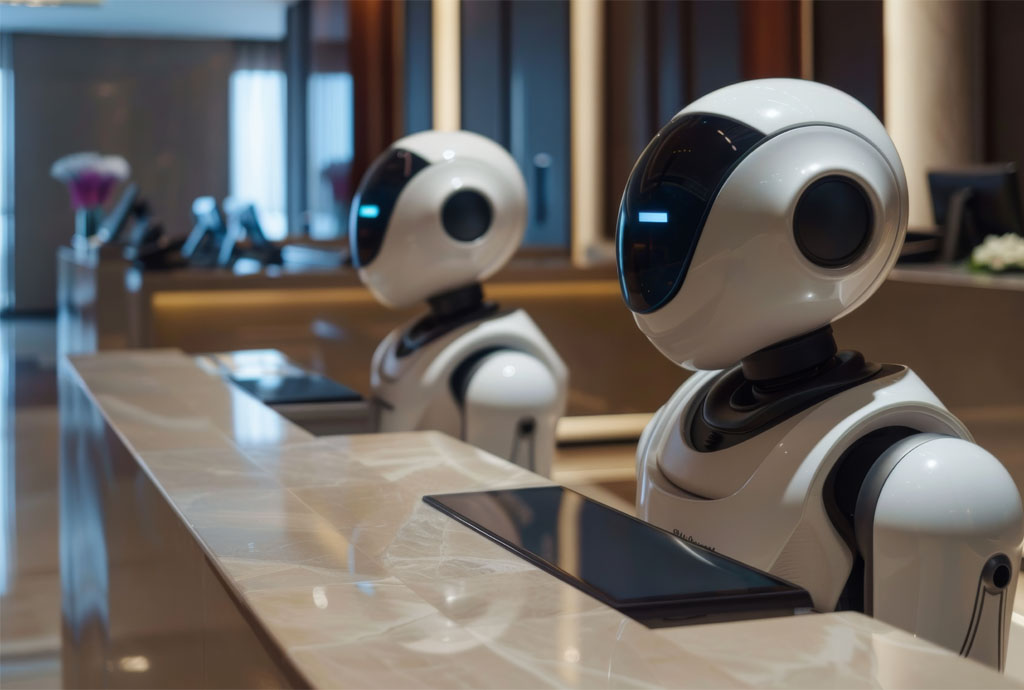
Is AI a Helpful Habib or Your Competitor?
July 30, 2025

Malta Sabiħa
July 20, 2025
All Juice, No Joy
July 31, 2025Artificial Intelligence has officially moved from TV screens to your favourite hotel. Denis Jin Young L returns with a timely reminder that no algorithm can replace a warm Maltese welcome.
Artificial Intelligence (AI) is now booking hotel rooms, mixing cocktails, forecasting occupancy, and even folding napkins in some cutting-edge restaurants (true story). But there’s one very pertinent question we need to ask: is AI a helpful ħabib? Or just an overconfident intern who doesn’t know how to make pastizzi... yet?
The good - say hello to your 24/7 employee of the month
Imagine hiring someone who never sleeps, never calls in sick, and can predict how much Champagne you’ll go through next weekend better than your sommelier. That’s AI at its best.
Take Marriott’s AI chatbot. It handles basic reservations and guest questions faster than you can say “ħobż biż-żejt”. No more staff stuck repeating check-in times or directions to the lift - it’s all handled instantly, even for that guest arriving from a delayed 3am flight.
And personalisation? That’s where AI truly shines. Hilton’s Connected Room knows your lighting, temperature, and TV channel preferences before you even unpack your suitcase. It’s like your favourite concierge, only digital, invisible, and incapable of forgetting how you like your pillows fluffed.
Behind the scenes, AI is also crunching numbers faster than a caffeine-fuelled accountant. Airbnb’s dynamic pricing algorithm adjusts rates based on demand, local events, and market trends. It’s like having a data wizard quietly boosting your revenue - all without taking up office space.
Security? AI’s got that too. In China’s FlyZoo Hotel (powered by Alibaba), guests check in with facial recognition and unlock rooms with their faces. Sci-fi or spy movie? Either way, it’s seriously slick - and safer.
And here’s one that’s gaining ground locally: predictive maintenance. AI can now spot equipment issues before they explode into guest complaints. That means no more surprise AC meltdowns in August or kitchen equipment breakdowns mid-service. Amen to that.
When used wisely, AI can streamline operations, reduce costs, and create personalised experiences that even your most loyal regulars will rave about. It's not just smart - it’s hospitality with a serious upgrade.

The bad - when AI tries too hard (and gets it hilariously wrong)
Now, we’d be lying if we said it was all smooth sailing. Sometimes, AI tries to wear the hospitality crown - and flops.
Picture this: you’re at a sleek, modern hotel with a robotic concierge that looks like a cross between R2-D2 and a vacuum cleaner. It’s fun for a second, until you ask for a romantic dinner spot and it recommends… a 200 seat restaurant. Oof.
That’s the thing: AI doesn’t ‘get’ nuance. It can give you the top Tripadvisor picks, but not that tucked-away rooftop in Mdina with the candlelit terrace and the best wine list in town. You miss the concierge who used to wink and whisper, “I know just the place”.
And let’s talk about chatbots. Great for basics. Not great for explaining why your grandmother needs a room with zero stairs and a window facing the sea. Cue a frustrating loop of canned responses that makes you want to toss your phone in the harbour.
Then there’s marketing mayhem. Ever booked a weekend away only to be bombarded by ads pushing the same deal - for less - ten minutes later? Thanks, AI. You’ve just ruined the thrill of the bargain.
When AI forgets that hospitality is, at its heart, a people business, things can go south. Fast.
The irreplaceable - why humans still reign supreme
Here’s the real talk: AI is impressive, efficient, and undeniably cool. But it still can’t do one thing - feel.
Hospitality is about moments, memories, and magic. It’s about the receptionist who sees the exhausted couple arriving late for their anniversary weekend and offers them a glass of wine with a sunset view, no script required.
It’s the waiter who senses a serious business lunch and subtly adjusts the pace of the meal. The housekeeper who notices a child’s forgotten teddy bear and places it on the freshly made bed with a chocolate.
AI can’t replicate that.
And in a place like Malta - with its layered culture, warm personalities, and a hospitality scene that thrives on local charm - this matters even more. A robot can translate languages, but it can’t sense when to step back, when to smile, or when to engage a guest in a heartfelt conversation about their grandmother’s Maltese roots.
It also can’t invent. Creativity - the kind that turns fresh fish from Marsaxlokk into culinary poetry or blends old Maltese traditions into an intimate event - comes from passion. Human passion. Try programming that.
The take-aways - it’s all about the mix
So - friend, foe, or fumbly intern? Truth is, AI is like gin. Alone, it’s a bit intense. But mixed properly - with just the right dose of human flair - it becomes something magical.
Hospitality isn’t about replacing people. It’s about freeing them up to do what they do best: connect. Smile. Surprise. Delight. AI can take care of the tedious so that your team can focus on the meaningful.
The future of hospitality isn’t all robots or all humans. It’s a perfectly-balanced blend of both.
So go ahead - embrace the bots. Just don’t forget to prioritise the human touch. After all, no algorithm can replace a warm Maltese welcome.

Denis Jin Young L.
Denis Jin Young L., a seasoned consultant in the hospitality sector with over three decades of experience, has called Malta his home for over eight years. Presently, he is the Director of Hospitality at the Xara Collection, which includes a variety of establishments such as the Villa Barumbara tal-Laring, the Xara Palace Hotel, Relais & Châteaux, Xara Catering, the Xara Lodge, Oka’s at the Villa, Medina restaurant, Trattoria 1530 AD, the de Mondion restaurant, Rosami at the Villa and the Xara Gardens.
Click here to see Horeca Issue 20 online



